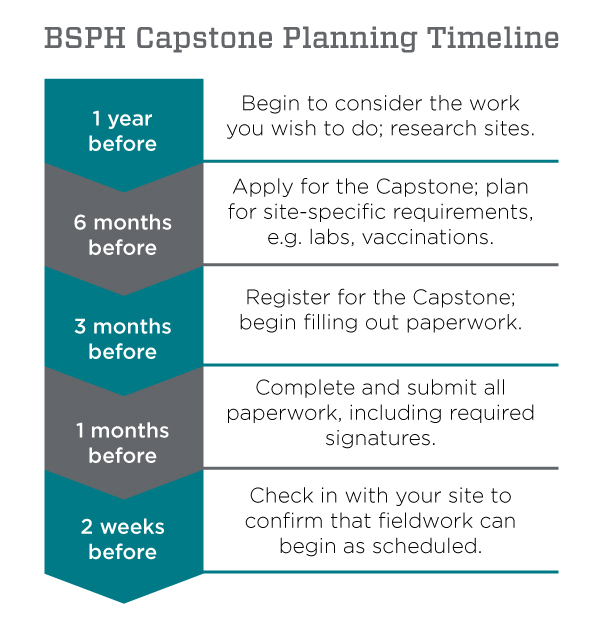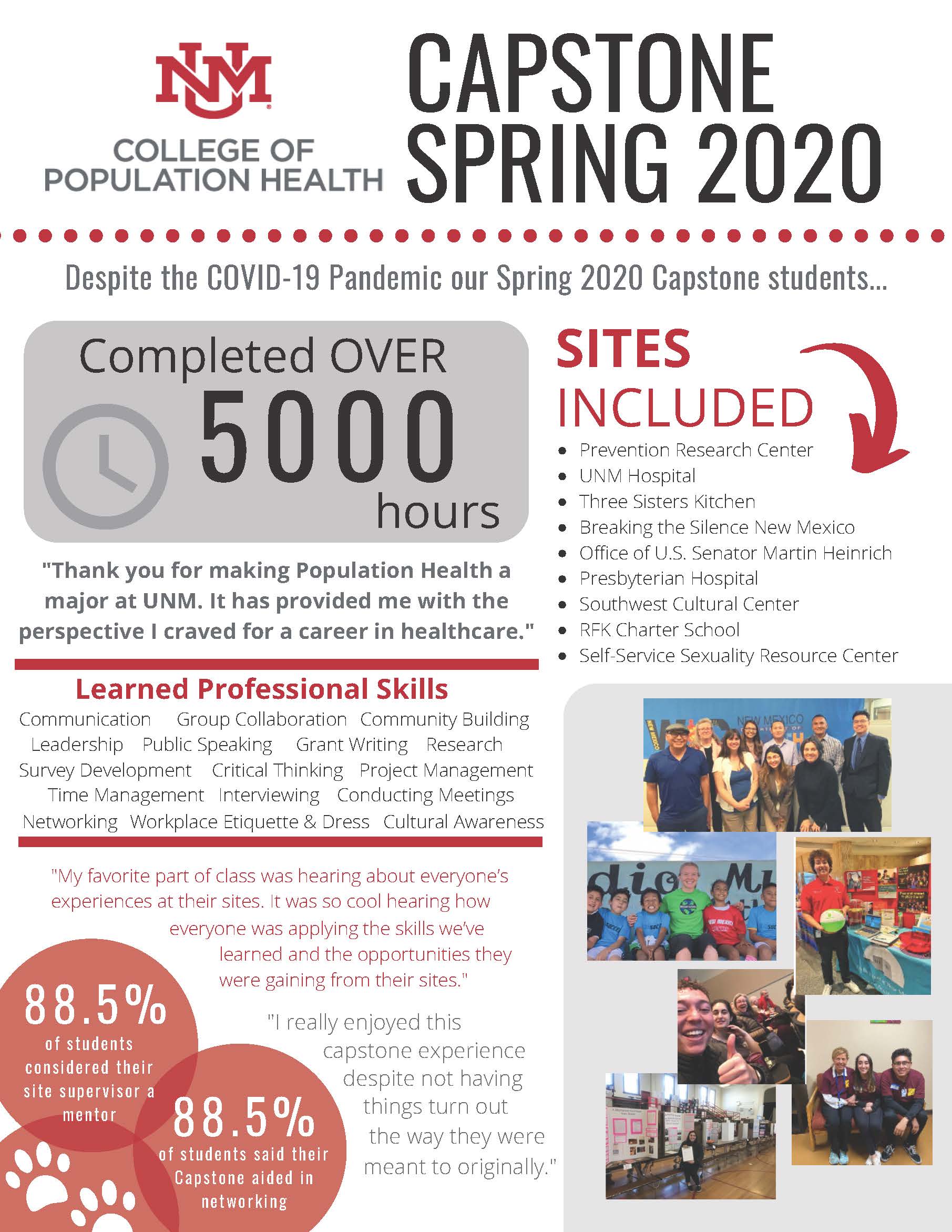Hours
During the BSPH Capstone, students earn credits through PH 475, a class that supports an intensive internship at a population or public health venue. The one credit class requires weekly class meetings between faculty and students, while additional projects (final fieldwork portfolios and presentations) and homework (weekly logs, discussion board participation, readings) are completed outside of class. The remaining five credit hours translate to 225 fieldwork hours. A minimum of 160 hours must be spent working with the selected site. The remaining 65 hours can be spent with the site, or on related activities, as approved by the instructor. Students are required to document all hours and activities in their weekly logs.
Grading
The Capstone is graded as credit/no credit which, means pass/fail—no letter grades are assigned. In order to pass the class, a student must participate in class discussions, complete all assignments, complete and document 225 hours of fieldwork, and receive satisfactory evaluations from their site supervisor and instructor.
Prerequisites
In order to take the class, students must apply to the Capstone, be in their final semester of COPH coursework, and have secured an approved fieldwork site and supervisor before the semester of the anticipated fieldwork.

Students must fill out a preliminary application in order to register for PH 475 and receive a list of potential placement sites. The deadline for the application is May 1 for a fall semester Capstone, and November 15 for a spring semester Capstone. However, students are encouraged to begin the planning process and submit applications well in advance of these deadlines.
Applications to take PH 475 are distributed to current BSPH students via BSPH listserv several times each semester.
BSPH Capstone Signup
Before the Capstone semester begins, and after submission of the class application, students must:
Students who do not meet these requirements must take PH 475 during a different semester. It is the student's responsibility to secure a site, but the fieldwork program team is available to provide support in the planning process.
"Start contacting sites early - you don't want to wait until they are all full!"
"Don't be afraid to ask questions and make sure a project is right for you!"
"Contact several potential supervisors. They will help you decide if it is right for you."
"Meet with the instructor eary and often."
Despite the COVID-19 Pandemic, our Spring 2020 Capstone students completed over 5,000 hours in community work for their field experience.
Students learned from and contributed to population health efforts when they were needed the most.

College Field Experience